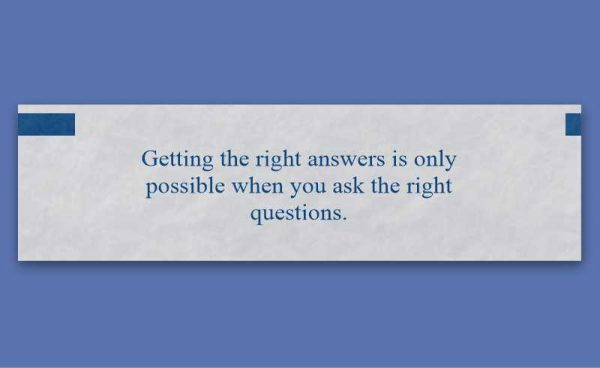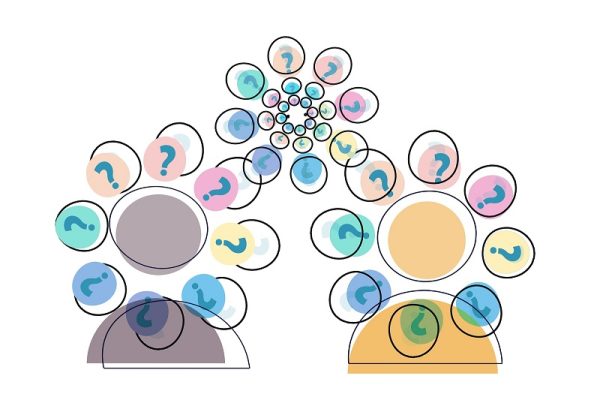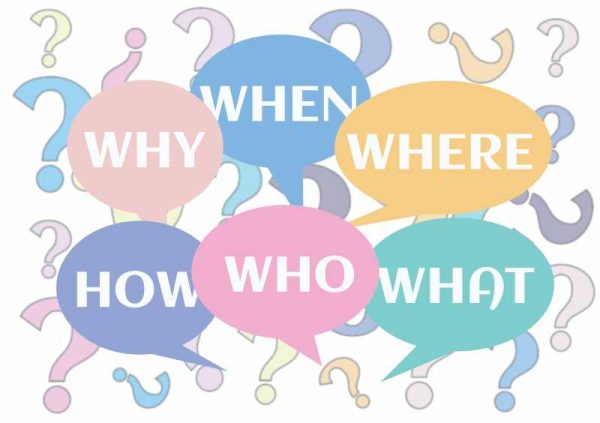Fortune Cookie Friday: Ask, And Ye Shall Receive
They say knowledge is power, but it’s not like knowledge drops in our laps. We have to search for it, and one of the best ways to do that is by asking questions. Unfortunately, not every question will give us the answers we seek. We have to ask the right questions if we want to get the right answers.
In Douglas Adam’s The Hitchhiker’s Guide to the Galaxy (1979), he wrote that the number 42 was the answer to the “Ultimate Question of Life, the Universe, and Everything.” Of course, that answer was calculated by a supercomputer called Deep Thought after seven and a half million years of thought and before anyone even knew the “Ultimate Question.”
Determining the “Ultimate Question” would require the construction of an even larger supercomputer called Earth, which the Vogons, unfortunately, destroyed to make room for a hyperspace bypass five minutes before it completed its calculations. But I digress.

Okay, so how do we ask the right questions? Well, we should start by determining what we want to know. We may be searching for a solution to something simple, such as what to eat for dinner, directions to a theater, or the name of a song flitting through our heads. If we are like Perry Mason or Hercule Poirot, we may want a deeper inquiry to determine the guilt or innocence of someone or solve a murder.
Whether we are looking for a quick fact-based answer, someone’s opinion, or a thorough investigation, we can use a few simple steps to get them.
Create an Open-Ended Question
An open-ended question is one that a person may not answer with a simple “yes” or “no” answer. We should ask it clearly and concisely. The last thing we want to do is confuse the person we question.
Find the Right Person
No one will be able to answer every question. It’s best to find someone in authority or knowledgeable in the field we are querying. If we are unsure if they can help us, all we have to do is ask.
Wait Patiently for Our Answer
We should find the best time to ask our questions and give the person ample time to answer. If it’s convenient to schedule some time to get a more thorough answer, then do it. It’s also best not to interrupt them when they do answer us. It is disrespectful of their time and may make them lose focus.
Say Thank You
A pleasant thank you is the perfect response to someone answering our question. Even if the person can’t answer our question, we should be gracious and thank them for their time.
Asking the right questions is essential for effective communication, and certain answers can lead to more questions. There may come a time when we need more than that one answer, especially if we are delving into legal, scientific, or philosophical realms.
If we continue to question, we may find things we have missed. Questions drive thinking forward and can foster innovation. One way we can glean more information is by using the Socratic Method.

This method is a form of open-ended inquiry where we use simple probing questions to develop a deeper understanding of the topic. Broken down into six types of questions, the Socratic Method helps us eliminate assumptions, contradictions, and misunderstandings to reach the answers we seek.
Clarification
We can ask the person to clarify their answer if we are on the verge of understanding but need more information.
Ex. Can you explain further? What do you mean? How does this relate to what we were talking about?
Challenging Assumptions
Many people make assumptions when answering a question and may not realize they are doing it. We can probe for these assumptions and ask how the person knows what they say is true. We can also restate the answer to verify that we understood what they said.
Ex. Do I understand you correctly? Is that always the case? What else could we assume?
Reasoning and Evidence
Depending on the person we ask, we can search for information to back up their answer.
Ex. What would be an example? What led you to believe that? Why?

Alternative Viewpoints and Perspectives
A key element of problem-solving is seeking alternatives and looking at other points of view. Our interpretation of a subject may be very different than someone else’s.
Ex. What is another way to look at it? What is the other side of the argument?
Implications and Consequences
There may be times when something said leads us to false conclusions. We can ask certain questions to make both parties think about the implications of a statement.
Ex. How would this affect someone? What is an alternative? What if you’re wrong?
Challenging the Question
It is important to understand the motive of the question. If the discussion has veered off track, questioning the question can help us restore the direction of the inquiry, make sure everyone is on the same page, and move toward the answer.
Ex. What was the point of this question? How can we ask the question another way?
Whew! As we can see, the Socratic Method can lead to answers and more questions. Will it answer the “Ultimate Question of Life, the Universe, and Everything?” Probably not, but looking for answers and asking the right questions can help us solve problems, become better communicators, and even find enlightenment. Or at least decide what to eat for dinner.




